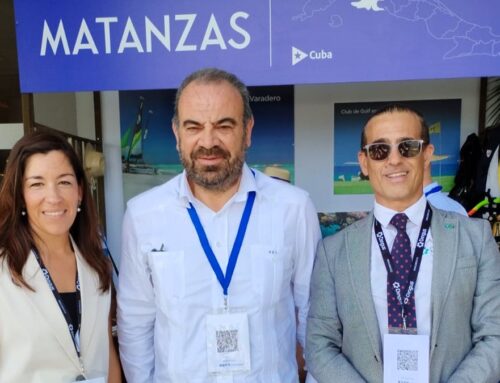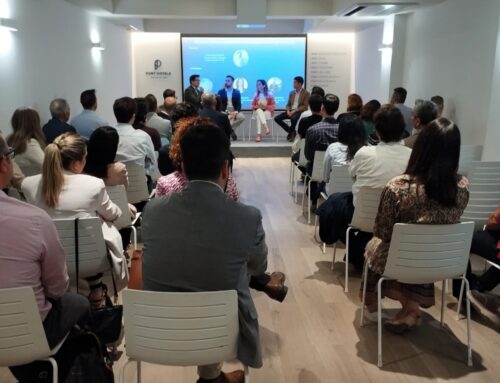The future impacts of COVID-19, in terms of depth of damage and recovery time in human, social and economic terms, are unknowns that we can hardly clear up at this time.
No one knows for sure what we will face tomorrow, but we can predict that it will be difficult for everything to be the same after the pandemic. In any case, I am not comfortable with the terms “new normality” or “social distance”… they are more of a dystopia than a transitory state until we regain our freedom, with the necessary and sufficient guarantees. We are therefore faced with a “different reality”, which will undoubtedly bring about more profound changes than those we can glimpse at this very moment.
In this line, there are many authoritative voices that predict the leading role of technology in the recovery processes of different economic sectors. The relationship between economic growth and technological progress is evident. We also know that, with each new paradigm, the impact of innovation is greater than the previous one.
With all this, it is acceptable to consider that technology is already and for years the most important economic sector in the planet. It is enough to see the capacity of sectoral transformation, compared to what was implied by the steam engine or electricity.
I recently read in “the Conversation.com” a very interesting article that started with a very suggestive introduction “the existential crisis that the tourism industry is going through”. Tourism was already facing the same pre-pandemic challenge as many other productive sectors, such as incorporating innovation throughout its value chain to continue to maintain global leadership. But this need was not, in any case, associated with a scenario of total reactivation.
The signs of this reactivation, although still weak and tremendously conditioned by a multitude of elements, imply that companies are changing gears and preparing post-COVID scenarios and that, in our opinion, they are divided in two:
In the short and medium term:
- Identification and reactivation of demand.
- Be attentive to M&A processes
- Maintain the most efficient strategies adopted during the crisis. Cost Control
- Accelerate the processes of Digital Transformation
In the long term:
- Planning a post-crisis strategy on scenarios radically different from the current one.
- The demand will change substantially and will require a deep reconversion at the company level to be able to offer market value levers that will ensure future competitiveness.
These months of hard journey through a desert, where in addition to an unthinkable 0 economic we have experienced a decline in our individual freedoms and have made (and are still making) important personal and business sacrifices, have served, however, to find moments of introspection, which have allowed to reassess priorities and learn to make decisions about what actually works or not, in a much faster and more effective.
We have seen how many companies have adapted very quickly to working from home, reoriented profiles, adapted procedures, intensified training processes and, above all, discovered a high level of empathy between customers, suppliers, co-workers, administration, etc. never before considered. In fact, the empathy that was commonly used was not effectively applied. The objectives of each one were always above any other consideration. So let’s enjoy this stage for as long as it lasts.
But all of us who, in one way or another, are involved in the value chain of the tourism sector, have had to reformulate our objectives in order to remain competitive in the future. A company like ours, where passion and vocation for technology and tourism are combined, has the duty and obligation to continue offering the most innovative solutions adapted to the new paradigm that the tourism sector is facing, caused by the health crisis and the inevitable reality of technological transformation.
Let us hope that the first signs of recovery indicate a trend that, although slow, is progressive and will allow wealth to be generated again. Without forgetting the vital lessons that both at business and personal level we have learned during these months of confinement. And on this occasion, nothing should fall into oblivion if we really aspire to overcome contingency and all the undiscovered sequels that for the moment offer a very complicated horizon. In it, even at the risk of going against some official versions, we will be economically very badly off. And that will complicate in the medium term the capacity to invest in the future.
This is the paradox that the post-COVID period holds for us: the need to innovate and accelerate the digital transformation as one of the great pillars of future competitiveness, against the reality of business coffers that have deteriorated greatly due to an economic situation that was unimaginable just a few months ago, and which will significantly condition the company’s competitiveness.
Collaboration between companies and the public sector must be the lever for medium- and long-term structural plans, in which the necessary reactivation of business activity is the most important means of generating wealth once again. We have learned many lessons in a short time, let us apply them. I, at least, “do not want to continue wearing a mask for the rest of my life”.
Jaume Monserrat
CEO & Co-founder Dingus / Hitt Group












